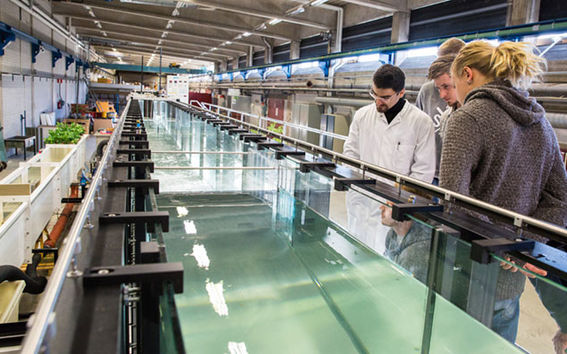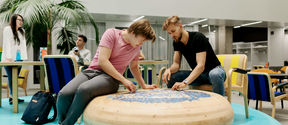The Aalto Co-Educators
All Aalto graduates should have the capability to analyse and tackle complex sustainability challenges especially related to their own field, and to grasp opportunities for making a change.

When renewing the curriculum, collaboration is important. Creating a common understanding of goals and the knowledge and skills needed by the graduate is an important starting point for the development of a solid, aligned curriculum.
Identify the sustainability challenges associated with the discipline and industry. The discipline may have direct connections to sustainability solutions, or on the other hand, a need for reforms to reduce negative sustainability effects such as carbon dioxide emissions.
Tools for this stage: To identify connections, you can use sustainable development goals or other frameworks of sustainability and sustainability transition. You can also search for research literature on sustainability in different disciplines and industries, as well as on integrating sustainability into the teaching of different disciplines.
When we integrate sustainability, the goal is that the graduate is able to utilize the expertise of their own field to cope with sustainability challenges and develop solutions. For this, the student needs both disciplinary knowledge and skills as well as knowledge and skills related to sustainability and solving sustainability challenges.
Even if the industry's perspective on sustainability focuses on certain solutions, solving complex sustainability challenges requires the ability to think on systems level, create future scenarios, weigh different perspectives and also ethical reflection. Solving the challenges also requires problem-solving skills, the ability to think strategically, and ability to create and develop viable solutions. Examining complex problems requires the ability seek for alternative perspectives, as well as creative problem solving and teamwork skills.
With the challenges of sustainability, the need for renew in education is great. You don't have to do the whole change at once, but it's important to start. So, work together with your teaching community to identify both short-term measures and a long-term vision and measures towards it.
The examples of development measures are compiled from the practices utilised by Aalto University's programmes.

All Aalto graduates should have the capability to analyse and tackle complex sustainability challenges especially related to their own field, and to grasp opportunities for making a change.

Teaching period: 7.3.-23.5.2025, in English, register by 12.2.2024